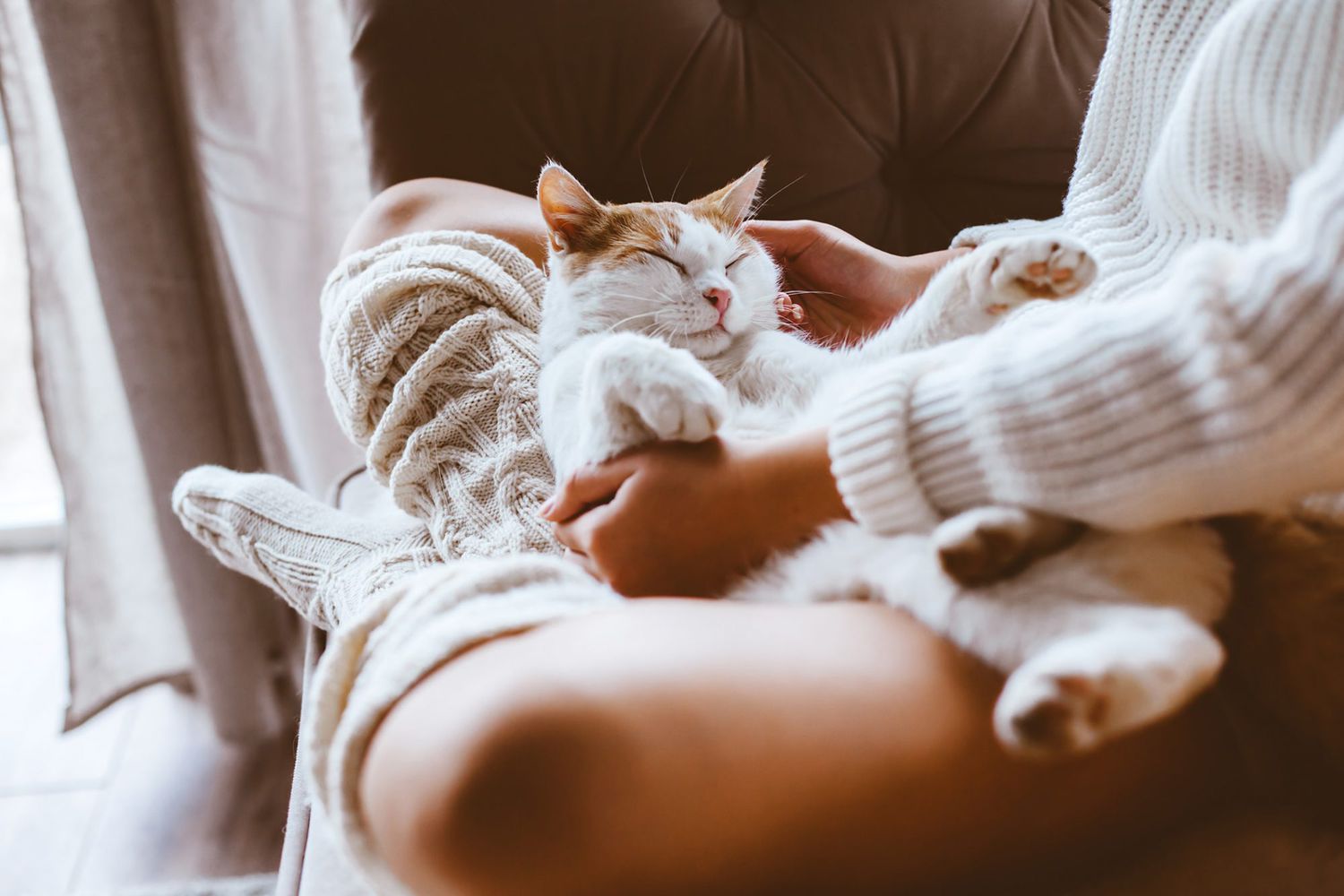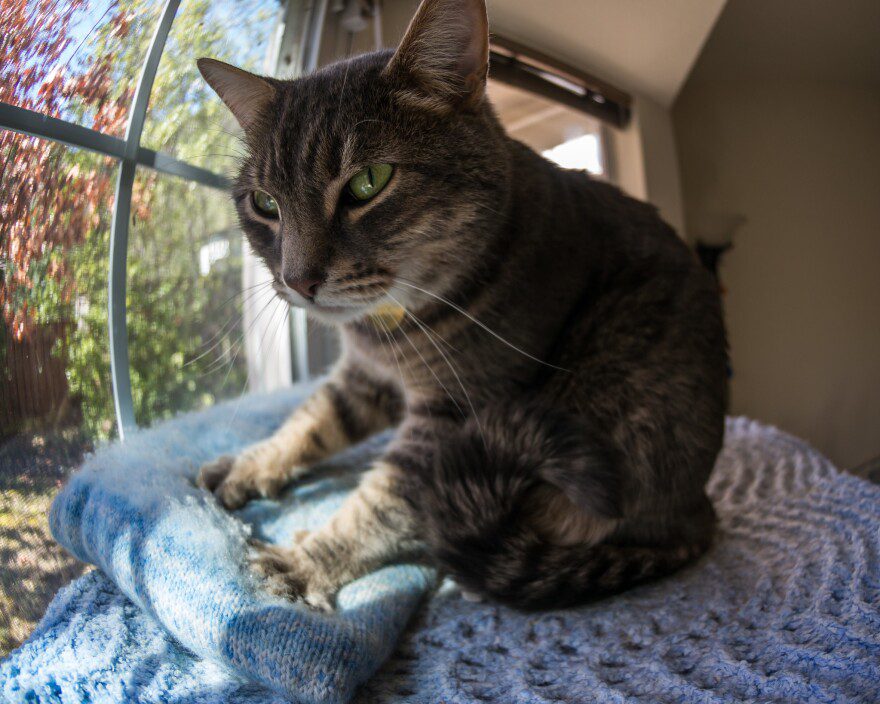Have you ever wondered why your furry feline friend occasionally lets out a cough? While it may seem harmless, decoding the mystery behind your cat's cough can actually provide valuable insights into their overall health and well-being. Understanding why your cat is coughing is essential for ensuring their happiness and longevity. In this article, we will delve into the fascinating world of feline coughs, shedding light on the reasons behind this common occurrence. So, if you're ready to uncover the secrets of your cat's cough and become an expert in deciphering their signals, keep reading!
Key Takeaways:
- Coughing in cats can be a sign of various underlying health issues and should not be ignored.
- Common causes of coughing in cats include respiratory infections, allergies, asthma, heart disease, and lung tumors.
- A veterinarian should be consulted to determine the cause of a cat's cough and provide appropriate treatment.
- Diagnostic tests such as X-rays, bloodwork, and bronchoscopy may be necessary to identify the specific cause of the cough.
- Treatment options for coughing in cats may include medication, lifestyle changes, environmental modifications, or surgery depending on the underlying cause.
Understanding Cat Coughing: Decoding the Reasons
Unraveling the Mystery of Cat Coughing
Have you ever wondered why your cat coughs? Well, cats can cough for various reasons, just like humans. When a cat coughs, it's their body's way of trying to clear their airways. It may sound like a hacking or wheezing noise, and it can be quite alarming for pet owners.
Cat coughing can be caused by several factors, including respiratory infections, allergies, asthma, or even hairballs. It's important to pay attention to your cat's coughing patterns and any accompanying symptoms to determine the underlying cause.
Signs that Your Cat is Coughing
Spotting when your cat is coughing can be a bit tricky since they don't always exhibit obvious signs. However, there are some common indicators that can help you identify if your feline friend is experiencing bouts of coughing:
- Frequent hacking or wheezing sounds
- Coughing up phlegm or foamy mucus
- Difficulty breathing or rapid breathing
- Lethargy or decreased appetite
- Sneezing or nasal discharge
Identifying Signs of Cat Coughing: How to Tell if Your Cat is Coughing
Listening for the Telltale Sounds of Cat Coughing
If you suspect that your cat might be coughing, listen carefully for specific sounds. A typical cat cough resembles a harsh hacking noise. It may seem like they are trying to expel something from their throat or lungs. Pay attention to any changes in the frequency or intensity of the coughing episodes.
Additionally, keep an eye out for other signs that may accompany cat coughing. These can include difficulty breathing, wheezing, or sneezing. If you notice any of these symptoms, it's important to consult with a veterinarian to determine the cause and appropriate treatment.
Observing Physical Signs of Cat Coughing
While listening for coughing sounds is essential, observing your cat's physical behavior can also provide clues about their health. Look for signs such as:
- Restlessness or discomfort
- Crouching or hunching posture
- Pawing at the mouth or throat
- Gagging or retching movements
- Inability to sleep or relax
Common Causes of Cat Coughing: What Makes Cats Cough?
Cats, just like humans, can experience coughing from time to time. There are several common causes of cat coughing that pet owners should be aware of. One possible cause is hairballs. When cats groom themselves, they may swallow loose hairs which can accumulate in their stomachs and form hairballs. These hairballs can irritate the throat, leading to coughing as the cat tries to expel them.
Another common cause of cat coughing is respiratory infections. Cats can catch viruses or bacteria that affect their respiratory system, leading to symptoms such as coughing, sneezing, and nasal discharge. These infections can be contagious and may require veterinary treatment to help the cat recover.
In some cases, allergies can also cause cats to cough. Just like humans, cats can be allergic to certain substances such as pollen, dust mites, or certain foods. When exposed to these allergens, cats may experience respiratory symptoms including coughing.
Natural Remedies for Cat Coughing: Home Treatments to Help Your Cat
If your cat is experiencing occasional bouts of coughing without any other concerning symptoms, there are some natural remedies you can try at home to help alleviate their discomfort. One option is steam therapy. You can create a steamy environment by running a hot shower and bringing your cat into the bathroom for a few minutes. The steam can help soothe their airways and reduce coughing.
Another home treatment for cat coughing is honey. Honey has natural antibacterial properties and can help soothe an irritated throat. You can mix a small amount of honey with warm water and give it to your cat orally using a syringe or dropper.
It's important to note that while these natural remedies may provide temporary relief for mild cases of cat coughing, they are not a substitute for veterinary care. If your cat's coughing persists or is accompanied by other concerning symptoms, it's best to seek professional veterinary advice.
Know When to Seek Veterinary Care for Your Cat's Cough
While occasional coughing in cats may not always be a cause for concern, there are certain signs that indicate it's time to seek veterinary care. If your cat's coughing becomes frequent and persistent, lasts for more than a few days, or is accompanied by other symptoms such as difficulty breathing, loss of appetite, or lethargy, it's important to consult with a veterinarian.
Coughing can be a symptom of various underlying health issues in cats, including respiratory infections, heart disease, asthma, or even lung tumors. A veterinarian will be able to perform a thorough examination and diagnostic tests to determine the cause of your cat's coughing and recommend appropriate treatment.
Remember that early detection and intervention can greatly improve the outcome for your furry friend. Don't hesitate to reach out to a veterinarian if you have any concerns about your cat's health.
Cats and Human Colds: Can Cats Catch a Cold and Start Coughing?
As much as we love our feline companions, it's important to remember that cats can catch colds too. While the viruses that cause colds in humans are different from those that affect cats, feline upper respiratory infections (URI) share similar symptoms with human colds. These symptoms can include sneezing, runny nose, watery eyes, and yes, even coughing.
Cats can catch URIs from other infected cats through direct contact or exposure to contaminated objects such as food bowls or litter boxes. It's crucial to keep sick cats isolated from healthy ones and practice good hygiene when caring for them.
If you suspect that your cat has caught a cold and is experiencing coughing along with other cold-like symptoms, it's essential to consult a veterinarian. They can provide the appropriate treatment and support to help your cat recover from the URI.
Preventing Respiratory Infections in Cats: Tips to Avoid Cat Coughing
Prevention is always better than cure when it comes to respiratory infections in cats. Here are some tips to help you reduce the risk of your furry friend developing a cough:
1. Vaccination: Ensure that your cat is up-to-date on their vaccinations, including those for common respiratory viruses such as feline herpesvirus and calicivirus.
2. Hygiene: Keep your cat's living environment clean and free from potential sources of infection. Regularly clean litter boxes, food bowls, and bedding.
3. Isolation: If you have multiple cats, separate any sick cats from healthy ones to prevent the spread of infections.
4. Stress reduction: Stress can weaken a cat's immune system, making them more susceptible to respiratory infections. Provide a calm and enriched environment for your cat with plenty of hiding spots and interactive toys.
5. Proper nutrition: A balanced diet rich in essential nutrients can help strengthen your cat's immune system and overall health.
By following these preventive measures, you can significantly reduce the chances of your beloved feline companion developing a cough due to respiratory infections.
Recognizing Serious Signs of Cat Coughing: When to Worry
While occasional coughing may not always be a cause for immediate concern, there are certain signs that indicate a more serious underlying issue requiring prompt veterinary attention. If you notice any of the following signs along with your cat's coughing, it's crucial to seek professional help:
1. Difficulty breathing or rapid breathing
2. Bluish tint on the gums or tongue
3. Persistent coughing lasting for more than a few days
4. Coughing up blood or foamy mucus
5. Loss of appetite or weight loss
6. Lethargy or weakness
These signs could indicate a severe respiratory infection, heart disease, asthma, or other potentially life-threatening conditions. It's essential not to ignore these symptoms and consult with a veterinarian as soon as possible for proper diagnosis and treatment.
Breeds Prone to Chronic Cat Coughing: Are Some Cats More Susceptible?
While cats of any breed can experience coughing, certain breeds may be more prone to chronic coughing due to specific health conditions. One such breed is the Siamese cat. Siamese cats are known to have a higher risk of developing asthma, which can cause persistent coughing episodes.
Another breed that may be susceptible to chronic coughing is the Persian cat. Persians are brachycephalic, meaning they have a flat face and shortened airways. This anatomical feature can make them more prone to respiratory issues, including chronic coughing.
It's important to note that not all cats of these breeds will develop chronic coughing, and individual factors such as genetics and environment also play a role. Regular veterinary check-ups and early intervention can help manage any potential health issues in these breeds and ensure your cat leads a happy and healthy life.
Overall, while some breeds may have a higher predisposition to chronic coughing, it's crucial to monitor the health of all cats regardless of their breed and seek veterinary care if any concerning symptoms arise.
In conclusion, coughing in cats can be caused by various factors such as respiratory infections, allergies, or heart disease. It is important to monitor your cat's cough and seek veterinary advice if it persists or worsens, to ensure their health and well-being.
Why is my cat coughing but not sick?
The main reasons why cats cough are usually due to hairballs, irritation in the throat, or allergies.
When should I worry about my cats cough?
But, if the cough lasts for more than a few days, is intense, produces phlegm, keeps coming back, or if your cat seems ill or is losing weight, it is important to seek guidance from a veterinarian.
Why does my cat cough like something stuck in his throat?
Cats sometimes cough, which is often confused with choking. Coughing in cats can be caused by hairballs, asthma, or heartworm disease. If you notice your cat coughing, it is important to have it examined by a veterinarian. Choking, on the other hand, is a serious emergency that requires immediate veterinary attention.
Why does my cat cough but no hairball?
If your cat is experiencing coughing without producing a hairball, it is crucial to observe any other symptoms that your cat may be displaying. Occasional coughing that occurs regularly (a few times a week or consistently every few weeks) could indicate the presence of asthma.
What are the symptoms of Lungworm in cats?
Symptoms of the condition can include coughing, difficulty breathing, wheezing, sneezing, reduced appetite or lack of appetite, weight loss, fever, swollen lymph nodes, and discharge from the eyes or nose. These symptoms may be more severe in kittens because their immune system is not fully developed.
Can I give my cat Benadryl for coughing?
The effectiveness of Benadryl in relieving coughs in cats depends on the cause of the cough. It is more likely to be effective for cats with dry coughs or nasal congestion caused by allergies, but it will not work for coughs caused by lung infections.

















